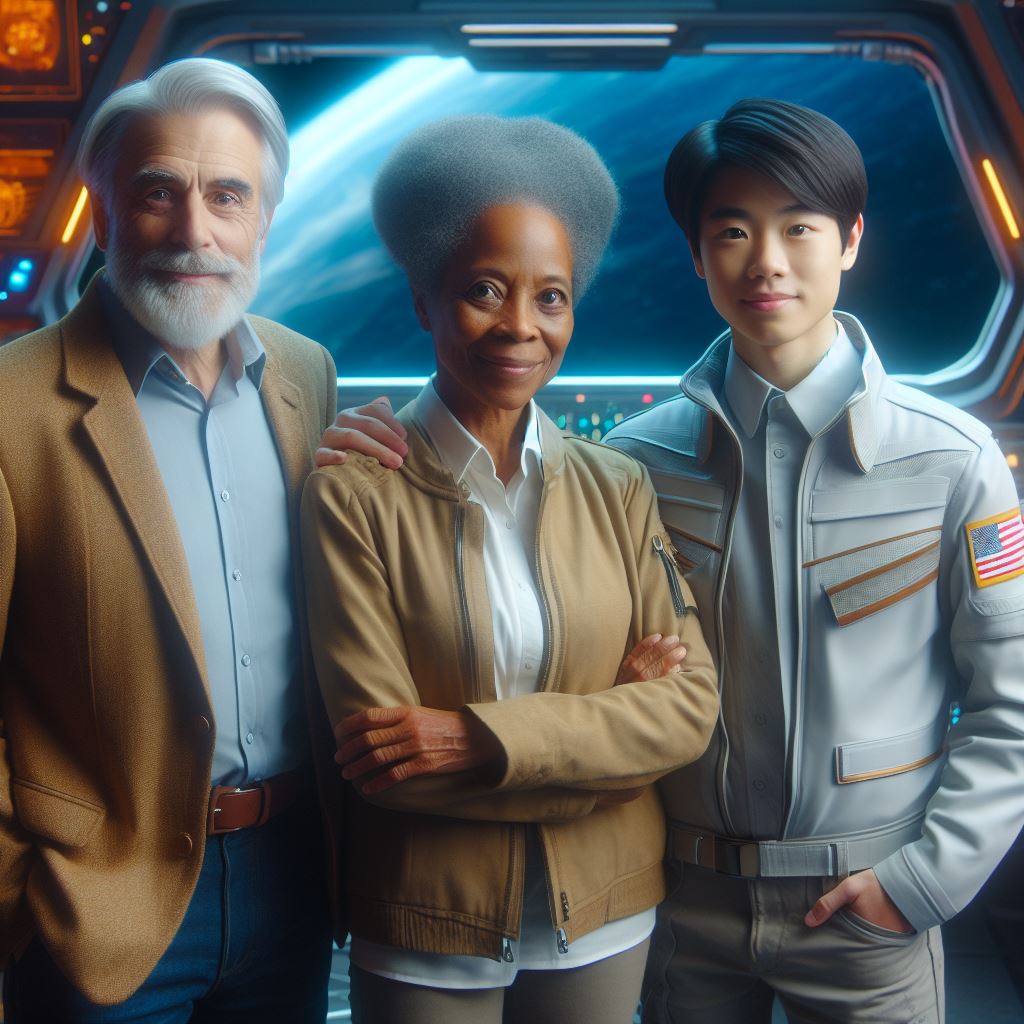HQ, The Shadow Directorate, 2059
In the softly lit control room, Victor Christopher Kingsley – known, with the ironic affection that soldiers bestow only upon respected commanders, as ‘VC’ Kingsley – focussed on an array of monitors, each one displaying the outcomes of missions that defied the very fabric of time itself.
Victor’s breath caught as he noticed one particular screen, on which a young Adolf Hitler was captured in an everyday moment, enjoying a slice of cake. It was an extraordinary sight, haunting and mesmerising in equal measure.
Turning to face Lyra, who, standing beside him, was now dressed in her usual attire of leggings, a sweatshirt, and trainers, he commended her efforts. “Outstanding work, Lyra. Being so close to him must have been quite an experience, huh?”
“It was,” Lyra’s voice carried more than a hint of intensity. “If I’m honest, my instinct was to ram that apple strudel down the back of his throat and make him choke on it.”
Victor chuckled. “Perhaps another day, you’ll get the chance to do that.”
“Don’t tempt me.”
“Once we’ve completed this mission, who knows what we might use the time travel tech for,” Victor mused.
Lyra furrowed her brow. “Won’t the Guardians take their toys back once we’ve completed the mission?”
“That’s not our understanding,” Victor replied. “I guess it will all depend on whether we fuck it up or not!”
They turned their attention to the next recording, featuring Hideki Tojo, the Prime Minister of Japan during World War II, a figure steeped in infamy for a litany of wartime transgressions. After Japan’s surrender in 1945, Tojo was arrested, tried for war crimes, and executed in 1948. In the video, he is seen inspecting a detachment of Imperial Japanese Army soldiers at the Omiya army base in Saitama.
“That guy’s face gives me the chills,” Lyra said. “There’s something about his eyes. They don’t just look at you, they look into you. It’s bloody creepy!”
“Agreed,” Victor replied. “Imagine the sheer terror his men must have felt when faced with such an intense stare.”
“Better them than me,” Lyra chuckled. “Right, Victor, it’s time to hit the gym. I’ll catch you later,” she added over her shoulder, already jogging toward the door.
Victor was proud of his agents; so far, their performance had been flawless. At times, he couldn’t believe how close they got to their targets to ensure that the recordings they brought back were as good as they were.
“Good call, Victor,” he murmured.
Until now, it had all been preparation, but soon, they would confront the real challenges, and his agents would need to perform at their peak. The moment to present the Prime Minister with proof of their remarkable time travel abilities was fast approaching. All that remained was to secure a few more historical recordings and gather some compelling footage from the future.
The Guardians had cautioned about the limitations of the time travel technology. A threshold existed, beyond which travel would become perilous. This boundary varied for each species, and pinpointing it was a task Victor and his agents had to undertake themselves.
So far, the furthest they had travelled back in time was to the year 1745. Victor had made that journey himself, driven by personal motives. His wife, Michelle, owned a publishing house specialising in magazines, and he wanted to surprise her for her 50th birthday. The gift he presented was a revolutionary periodical – The Female Spectator – curated by Eliza Haywood and acclaimed as one of the earliest woman-authored magazines in history – not merely any publication, but a cherished milestone in literary history.
As anticipated, the gift was warmly received, earning him a wealth of goodwill – a valuable asset he had seen as necessary, particularly as the new job would require prolonged absences from home.
Victor enjoyed being the man in charge. He held sway not just over any organisation, but rather the most crucial clandestine entity to have ever graced existence. His team had christened him Chronos – a moniker he found fitting – for it served as a reminder that time was now both his ally and adversary, leaving no room for mistakes.
His priority was time travelling to the future because the event they sought to prevent was set for that time. However, to demonstrate the functionality of the technology, they needed to embark on journeys to the past. Hence, pinpointing the temporal threshold where risks might arise and establishing a safe zone became essential tasks.
They had gained an initial understanding of this by involving time-traveling primates. The tests uncovered two crucial findings: any time jump exceeding 1,300 years compromised the chimpanzees’ behaviour. Upon returning, they showed a near-total loss of cognitive function, struggling even with basic tasks such as feeding themselves.
If you would like to buy the book, it is currently available on Lulu.com – BUY NOW




